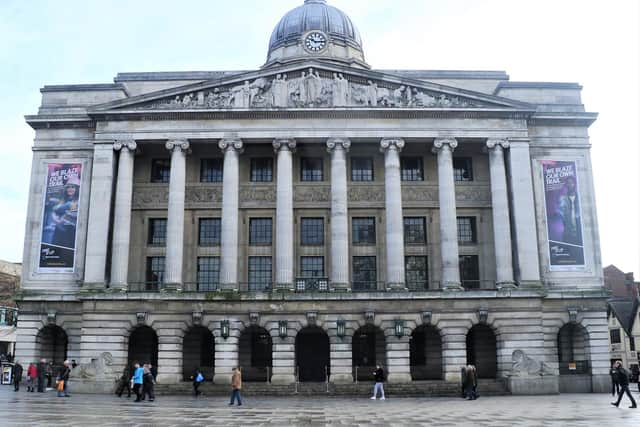Councils at 'breaking point' Government warned, as dozens more at risk of bankruptcy
It comes as Nottingham City Council became the 13th council to issue a Section 114 notice - effectively stopping all non-essential funding.
Just a day before, the chairman of the Levelling Up, Housing and Communities (LUHC) Committee, Sheffield MP Clive Betts, wrote to the Secretary of State Michael Gove warning councils across the country were facing a “tipping point”.
Advertisement
Hide AdAdvertisement
Hide AdIn Yorkshire, Kirklees has voluntarily stopped non-essential funding in order to stave off the dreaded section 114, while Bradford council has also warned its reserves are “close to exhaustion”.


Some of the councils which have been first to declare bankruptcy have been those which have made serious and high-profile mistakes in the recent past: Birmingham with an unpaid equal pay claim scandal; Nottingham with the collapse of the council-run Robin Hood Energy, and Thurrock with a huge commercial portfolio acquired with an “extreme” appetite for financial risk.
But Mr Betts told the Yorkshire Post the situation was now critical at most councils, with “many many more” likely to declare bankruptcy within two years.
The letter states: “This situation is becoming untenable for some local authorities and greater central Government support is clearly required.
Advertisement
Hide AdAdvertisement
Hide Ad“Whilst it is clear that there have been some failures of leadership and decision-making which have caused acute financial distress in specific local authorities, we have heard that there are now system-wide issues which are driving general financial distress across the sector.
“For example, Conservative Councillor John Fuller, leader of South Norfolk District Council and speaking on behalf of the Local Government Association, told us that: We are probably at an inflection point, where the number of authorities contemplating issuing 114 notices is becoming more general, as opposed to the specific reasons we have seen thus far.
“There is a general understanding that if not this year, next year, about half of the authorities will be in distress. That is a significant number.”
“Similarly, Gary Fielding, (corporate director) at North Yorkshire Council, told us that: We have moved from having one or two councils, with particular issues—whether it is maverick behaviour or leadership—being affected, to having what I regard as good councils, run by good officers and with political stability, now facing existential challenges.”
Advertisement
Hide AdAdvertisement
Hide AdHe said the problems were being felt disproportionately in more deprived areas: “Because council tax increases are limited by percent, so a one per cent increase in Barnsley or Kirklees raises a lot less council tax than one percent increase in Surrey or Hampshire,”
With many of these areas being more likely to vote Labour than Conservative, the Government has been quick to blame the local leadership, rather than the national structure.
Asked whether he thinks the Government would take action on the issue before the next election, Mr Betts said: “It’s quite possible they’ll wait, and leave the problem to whichever Government gets elected. I think that’s quite likely.
Instead, on the current trajectory the situation will worsen. The letter states: “We understand that, following the Autumn Statement, existing departmental settlements have not been adjusted to reflect higher than expected inflation forecasts, and that this will increase cost pressures on departmental budgets.
Advertisement
Hide AdAdvertisement
Hide Ad“According to the OBR, spending in ‘unprotected’ areas (which includes local government) will need to fall by 2.3 per cent per year in real terms from 2025-26.”
It continues: “We heard evidence that local authorities cannot effectively manage their finances without clarity over their medium-term funding.
"For example, from Dr Jonathan Carr-West, Chief Executive of the Local Government Information Unit, who told us that: One chief executive said to me, “It’s not just that we don’t have enough money; it’s that we never know how much money we don’t have.” You are constantly guessing at what the situation might look like, because we get one-year financial settlements; you have bid funding, which is competitive and uncertain. So you do not even have a set foundation on which to make decisions.
When asked for a response to the letter, a spokeswoman for DLUHC said: “We recognise local authorities are facing pressures and have increased their Core Spending Power by up to £5.1 billion or 9.4 per cent in cash terms on 2022/23, with almost £60 billion made available overall.
“We stand ready to speak to any council that has concerns about its ability to manage its finances or faces pressures it has not planned for.”
Comment Guidelines
National World encourages reader discussion on our stories. User feedback, insights and back-and-forth exchanges add a rich layer of context to reporting. Please review our Community Guidelines before commenting.
